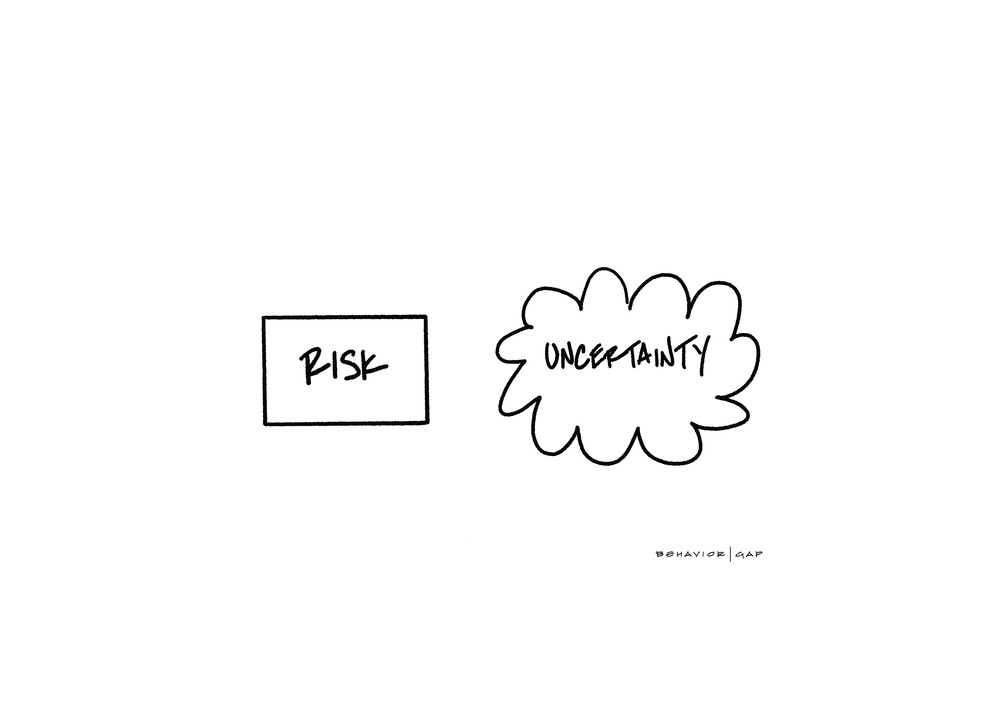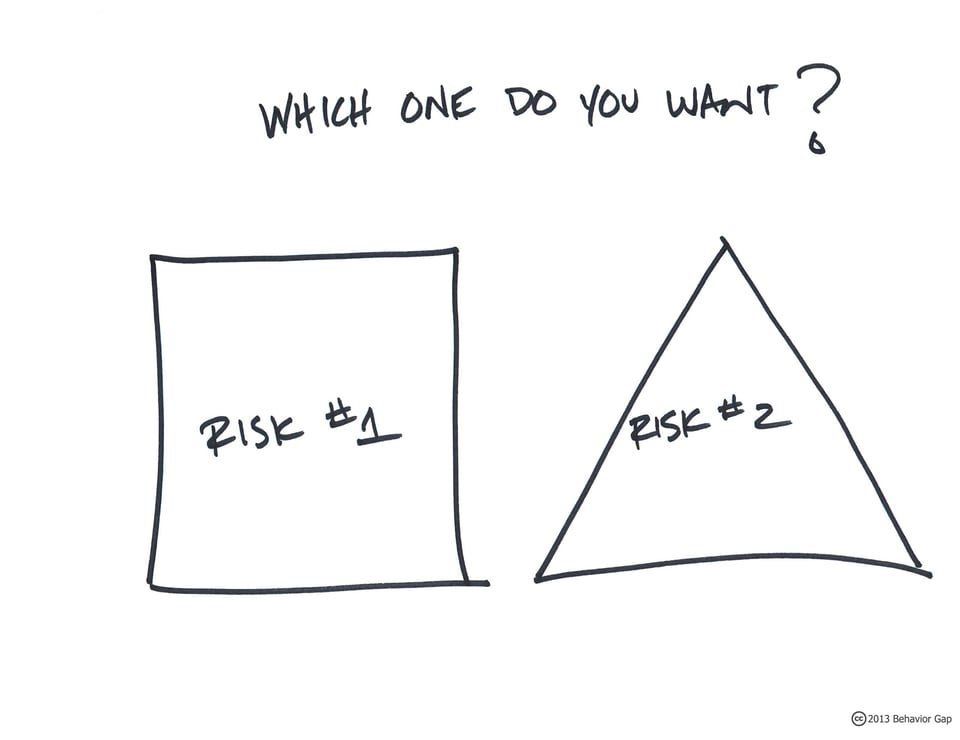

This blog is from our friend and financial journalist, Robin Powell.
He tackles the topic of risk...
And how it's not quite as easily defined as you may think.
Risk depends on a variety of factors - individual to you, the investor.
Understanding this can make a massive difference to your investment goals.
More below.Ask an economist to define risk when it comes to investment and they will most likely reply that it depends.
Of course, there are complex mathematical models that attempt to quantify risk, but these on their own are never likely to be enough.
Risk related to any one investment often comes down to a host of other factors…
Like what is happening in the rest of your portfolio...
What your consumption needs are at a specific time or...
What’s happening with your job and income.
Sometimes you will hear risk being defined in terms of volatility, or the degree to which an individual investment goes up and down in price.
But this is an over-simplification and doesn’t take into account all the individual elements that come into play.
For instance, if your stock portfolio is gyrating wildly from day to day...
This is not going to mean much if your investment horizon is 20 years or more.
Ultimately, what you are worried about is a permanent loss of capital.
In contrast, if you’re three months away from retirement and the market drops 40%, that’s a risk you should be concerned about.
Ultimately, risk is not a number but a scenario – your money is lost, you don’t have enough to retire on, you can’t reach a specific goal, you can’t get easy access to your money or you’re too exposed to a single stock, sector, country or currency.
In any case, volatility on its own tells you nothing.
You might have two individual stocks with similar levels of volatility.
But if one of them has poor returns at a time when you need the money or you’re out of a job, then it’s riskier for you.

Another common misconception is mistaking risk for uncertainty.
In both cases, no one can say for sure what is going to happen.
But in the case of risk, we have a sense of the probabilities.
If you flip a coin, for instance, you know there is a 50% chance of it coming up tails.
Of course, you might throw heads 10 times in a row, but the point is you know there are only two possible outcomes.
You can judge the odds.
With uncertainty, you can’t model it.
A rare event comes out of left-field, confounding all expectations.
A metaphor often used here is a ‘black swan’ event, popularised in a 2007 book by Nassim Nicholas Taleb.
The current Coronavirus crisis can be classed as such.
Another example would be the 9/11 attacks.
The other frequently overlooked idea is that not taking any risk at all can be a risk in itself.
For instance, by being overly defensive in your portfolio there’s a risk you may not have enough to retire on.
Some level of risk is necessary because the flipside is the possibility of return.
The key question is how much risk you can live with.
Finally, in assessing risk it’s important to distinguish systematic risk from non-systematic risk.
The first is something you can’t avoid.
It goes with the territory.
For instance, shares are considered riskier than bonds and for that reason they offer a higher expected return.
Non-systematic risk you can manage.
If your entire portfolio was in banking stocks ahead of the global financial crisis, that was concentration risk – a type of non-systematic risk.
You could have managed that by diversifying across different sectors.
There are other types of risk, as well.
Liquidity risk refers to how easily you can access your money.
Credit risk refers to the possibility of a bond issuer defaulting.
Inflation risk relates to a generalised rise in prices eating up the value of your investment.
The overall rule is that you want to take risks that are related to a reward.
 In general, markets reward risk over the long term, providing you are sufficiently diversified and disciplined and pay attention to factors within your control, such as costs and taxes.
In general, markets reward risk over the long term, providing you are sufficiently diversified and disciplined and pay attention to factors within your control, such as costs and taxes.
How much risk should you take?
Unfortunately, we are going to have to call on that economist answer again: It depends.
What are your goals?
What are your circumstances?
What risk can you live with?
How much risk do you need to take?
Ultimately, there isn’t one right answer.
What we do know is there will inevitably be periods where you feel uncomfortable.
That’s okay.
Depending on your horizon, and assuming you are sufficiently diversified, you may be able to ride out that out.
And of course having a financial planner that you trust can make the world of different to how much clarity, confidence and control you have…
Even in the most uncertain and challenging times.

